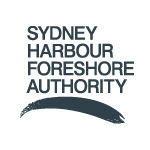Australia Day, celebrated each year on 26 January is a public holiday taken by all states and territories. But, as the country's national day, what exactly is being commemorated? What do we know about what happened on that date in 1788 to deserve such a large celebration every year?
The Australian Government website describes Australia Day as:
"Australia's national day is held on 26th January in recognition of the arrival in 1788 of the First Fleet, a group of 11 ships that sailed from England to establish a colony in Australia."
The Australian citizenship test resource book explains the day as:
"26 January is the anniversary of the arrival of the First Fleet from Great Britain in 1788 to set up a convict settlement for the British Government. The commander of the First Fleet was Captain Arthur Phillip."
The Australia Day Council website says:
"That was the day in 1788 Captain Arthur Phillip, commander of the First Fleet of eleven convict ships from Great Britain and the first governor of New South Wales, arrived at Sydney Cove."
The 'Australia Day in Victoria Website' says:
"January 26, through more than 200 years of debate and controversy, has remained the Australian celebratory national day since that date in January 1788 when 'formal possession was taken of the Colony of New South Wales. On that day, Captain Arthur Phillip became Governor of the Colony, having jurisdiction over the area bounded by latitude 10 37' to latitude 43 49' south and inland to longitude 135 east'."
The Australian Government and the citizenship resource book definitions imply that it is the date the First Fleet arrived in Australia, but that isn’t the case. Captain Arthur Phillip, the first Governor, arrived at Botany Bay a week earlier on 18 January 1788. The Australia Day Council definition says that it was the day that Phillip arrived at Sydney Cove, but this is incorrect as well, he arrived on 25 January, a day before. The 'Australia Day in Victoria' website says it was the day that the 'formal possession' of the colony occurred, but that didn’t occur until 7 February 1788 when Phillip read the proclamation.
So what did actually happen on the 26 January 1788? Fortunately, a few of those who were part of the First Fleet have left details of the events (the excerpts have been transcribed and inserted with their original spelling). These few records were written by the officers of the First Fleet, whilst there are some records from sailors (for example, Jacob Nagle, whose account was written 40 years later). There is no account from the local indigenous people’s viewpoint. To find out exactly what did happen on the 26 January 1788, the words of those who left records will be used to give an account of the events that occurred.
18-20 January 1788
22 January 1788
25 January 1788
26 January 1788
Subscribe to:
Post Comments (Atom)


No comments:
Post a Comment